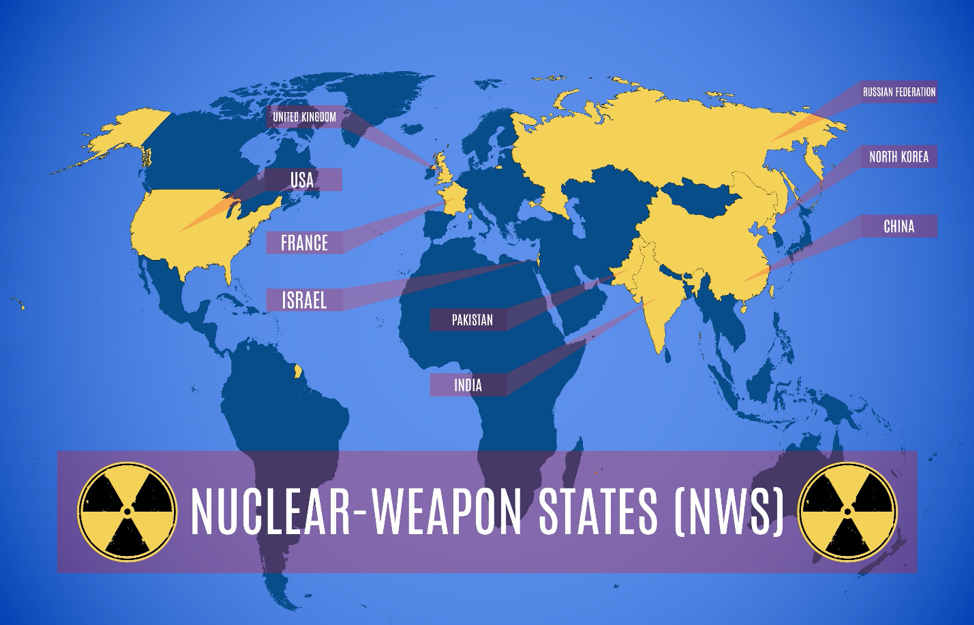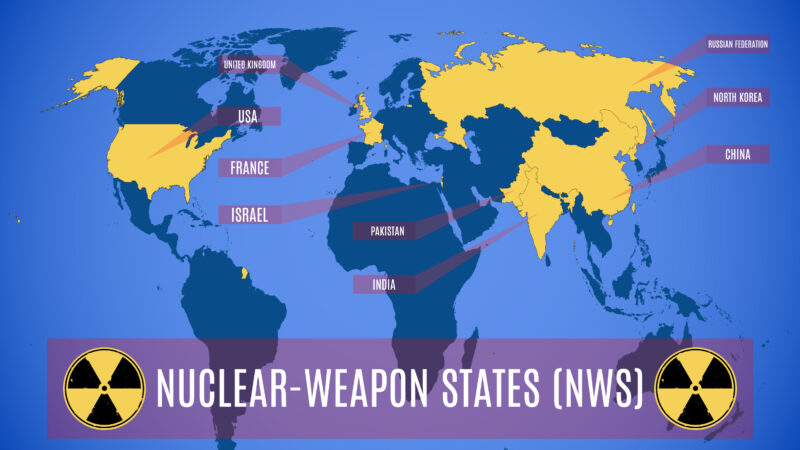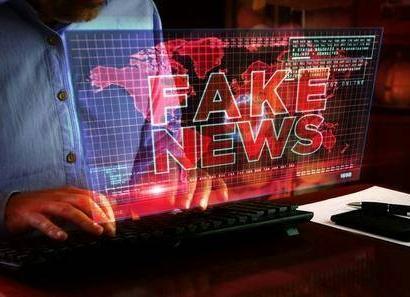Abstract: The goals of reduction and eventual elimination of nuclear weapons now have poor prospects as major nuclear-armed powers reaffirmed these Weapons of Mass Destruction’s (WMD) strategic value several times. Global nuclear arms race and proliferation to security-ambitious non-nuclear-armed countries also threaten to prolongate the nuclear era indefinitely. Nuclear-armed states have used the NPT to legalize their nuclear possession in terms of sovereignty and criminalize everyone else’s, making the NPT a hypocritical nuclear order.
Bottom-line-up-front: Apart from why nuclear-armed states boycotted the Treaty on the Prohibition of Nuclear Weapons, none of them signed, the NPT is too hypocritical to be sustained as a global norm.
Problem statement: How to understand the increase of states with nuclear capabilities in the light of the Non-Proliferation Treaty and the ‘nuclear development by eating grass’ approach?
So what?: The five approved nuclear states should provide a detailed plan on reducing and dismantling their nuclear weapons in mid, long-term views. This must be the main basis of the New NPT and should include the de facto nuclear states in a follow-on stage. A multilateral “nuclear conference” must be held annually to further develop a roadmap and assess progress.

Source: shutterstock.com/WindVector
NPT – A Regulation without Normative Power
It has been 50 years since the five great powers were given international approval to possess nuclear weapons, promising the commitment to the nuclear Non-proliferation Treaty (NPT) to “pursue negotiations in good faith on effective measures relating to cessation of the nuclear arms race at an early date and to nuclear disarmament.”[1] However, the signatory states are still modernizing their nuclear forces, along with de facto nuclear states like India, North Korea, Pakistan, and Israel. As such, the current NPT has flaws and is unable to deal with today’s worldwide proliferation. It is time to discuss the four de facto nuclear weapon states that have been improving nuclear weapons, and why the current NPT should not be a global non-proliferation regime but be adapted instead.
The State of Israel serves as an illustrative example for the development of a nuclear deterrence capability, triggered by its security environment. The foundation of Israel was followed by conflicts in the Middle East and threats posed by its adjacent Arab countries, such as the 1st Middle East War in 1947. Due to its unstable security environment, Israel has reportedly pursued a small but reliable nuclear capability.[2] It was the first country that acquired nuclear weapons after the five approved nuclear-armed states, setting an imitable precedent for India, Pakistan, and North Korea. In the Ben-Gurion administration, Israel concluded that it needed to arm itself with nuclear weapons to deter the neighboring enemy states. Consequently, Israel contacted France to develop nuclear capabilities, achieving French technological support by sending Israeli nuclear scientists to France-held Algerian nuclear facilities. Israel is presumed to have acquired its first nuclear weapon in 1966. It is estimated that the state has a maximum of 400 nuclear warheads at present[3] and is also modernizing its nuclear triad, although further details remain unclear.
In the Ben-Gurion administration, Israel concluded that it needed to arm itself with nuclear weapons to deter the neighboring enemy states.
As India became independent from the United Kingdom as of 1947, it had suffered from a series of conflicts with China and Pakistan, especially over the territorial disputes in Tibet and Kashmir. These have not been solved even after the Sino-Indian war in 1962 and the Indian-Pakistani military confrontation that still lasts nowadays. Also astounded by China’s success of its nuclear experiment in 1964, these all-or-nothing conflicts functioned as a catalyst that paved the way for India’s resolute decision of nuclear armament. This was despite the fact that India was a leading non-nuclear country that called for nuclear arms reductions since its independence.[4] Consequently, based on its ample science, technology and assets established by the first Prime Minister Jawaharlal Nehru, India, led by Indira Gandhi, officially became a nuclear power in 1998, which was a challenge to the NPT order and vested interests of the official five nuclear powers.[5] Furthermore, India’s nuclear modernization is entering a new phase these days as the state works on developing several long-range means for its submarine and land-based platform. It is aware of the significance of completing the nuclear triad with its approximately 110 nuclear warheads. For India, it was worth taking advantage of loopholes of the NPT, considering fruitful security outcomes from which the country has benefitted so far. This is possible as the non-proliferation treaty does not have any international authority to enforce the respective regulations. India chose not to sign it, rather publicly decrying five recognized nuclear states (United States, Russia, United Kingdom, France, China) that are forcing non-nuclear states to stay away from possessing nuclear arms.
North Korea might be mentioned as a counterargument. However, it is a different case, given the fact that Kim’s regime is under international political pressure, mainly because of its established precedent as one of the NPT-signatory states. Ultimately, the North withdrew from the treaty in 2003. India did not even consider signing it, not leaving any room for controversy or justifiable pressure from the nuclear hierarchical norm.
Pakistan had limited resources but started working on the nuclear development project, motivated by the defeat in the Indian-Pakistani War in 1971 and India’s success of acquiring nuclear weapons in 1974. Facing a security crisis due to the war’s outcome and the secession of East Pakistan where over half of the Pakistani population had lived, the high-level governmental officials, generals, and President Zulfikar Ali Bhutto became increasingly hostile toward India, quickly deciding to develop its own strategic nuclear arms regardless the costs. The Pakistani general Feroz Hassan Khan clarified that the humiliating defeat in 1971 was the basis of Pakistan’s strategic thinking that it needs nuclear weapons so that the same kind of disgrace will not be repeated.[6] Since then, Pakistan invested all available national capacities in its nuclear project and accomplished substantial progress assisted by Chinese and Pakistani research institutions. Although Pakistan lacked both technologies and funds, the strategy called ‘nuclear development by eating grass’ was the core despite domestic difficulties. This ‘Pakistani Model’ is still a feasible option proving that even a state without any economic or technical power can succeed in nuclear development, which is the very case that North Korea later benchmarked. Pakistan has also upgraded its nuclear infrastructure, including plutonium production, uranium enrichment, and spent fuel reprocessing facilities.[7] Such nuclear capacity modernization and flaws of the NPT imply nuclear proliferation to other states.
Although Pakistan lacked both technologies and funds, the strategy called ‘nuclear development by eating grass’ was the core despite domestic difficulties.
NPT – Undermined by Reality
Decades of nuclear proliferation and perpetual modernization among non-nuclear countries undermine the promise of the NPT: the end of the nuclear competition and its complete abandonment. The goals of reduction and eventual elimination of nuclear weapons now have poor prospects as major nuclear-armed powers reaffirmed these Weapons of Mass Destruction’s (WMD) strategic value several times. The global nuclear arms race and proliferation to security-ambitious non-nuclear-armed countries also threaten to prolong the nuclear era infinitely. Nuclear-armed states have used the NPT to legalize their nuclear possession in terms of sovereignty and criminalize everyone else’s, making the NPT a hypocritical nuclear order which India once dubbed “nuclear apartheid”.[8] In other words, non-nuclear-weapon states, that dismissed the idea of possessing nuclear weapons by trusting the NPT and the goodwill of nuclear weapon states, can justifiably cast doubt about the treaty’s meaning or purpose by questioning whether this trend of nuclear modernization and proliferation is desirable. Apart from why nuclear-armed states boycotted the Treaty on the Prohibition of Nuclear Weapons, none of them signed, the NPT is too hypocritical to be sustained as a global norm. It needs overall change because: De facto nuclear-armed states are still not covered by the NPT, China and Russia that transferred key technology to developing states judge nuclear legality by criminalizing other states, and discrimination between “have” and “have-not” countries is counterproductive to the treaty’s fundamental objective.[9] Therefore, the five nuclear-armed states that ratified the NPT should develop a specific roadmap that suggests comprehensive details on how their nuclear weapons will be reduced. Otherwise, the global skepticism about the NPT will keep growing. The ‘New NPT’ must include the de facto nuclear states. The new nuclear norm could benchmark the regular six-party talks in the 2000s among Northeast Asian states to discuss the North Korean nuclear problem. The Asian talk turned out to be a failure. However, an improved, annual communication platform such as the “eight-party nuclear talks” that includes both the internationally approved and de facto nuclear powers might be considered by the New NPT for nuclear arms reduction.
In other words, non-nuclear-weapon states, that dismissed the idea of possessing nuclear weapons by trusting the NPT and the goodwill of nuclear weapon states, can justifiably cast doubt about the treaty’s meaning or purpose by questioning whether this trend of nuclear modernization and proliferation is desirable.
If the current NPT cannot reflect those blind spots or the nuclear powers do not react with the willingness to reduce their destructive arsenal for some political and security strategic reasons, one can conclude that the NPT has ‘politically’ and ‘semi-permanently’ expired. In that case, the NPT can no longer be seen as a valid tool to dissuade other non-nuclear states from acquiring strategic nuclear forces. The metaphorical rhetoric of India, Iran, and Namibia who bluntly called the NPT “nuclear apartheid” will remain an accurate term, unless the non-proliferation regime is reformed.
Daehan Lee; research interests: nuclear/maritime security, nuclear proliferation/non-proliferation, multilateral security cooperation, the ROK’s national security strategy, and South Korean politics The views contained in this article are the author’s.
[1] International Atomic Energy Agency (IAEA). “Treaty on the Non-Proliferation of Nuclear Weapons (NPT), Article VI”, 1970, Retrieved December 06, 2019.
[2] Rachael Revesz, “Colin Powell leaked emails: Israel has ‘200 nukes all pointed at Iran’, former US secretary of state says”. TheIndependent, September 16, 2016, accessed April 22, 2021, https://www.independent.co.uk/news/world/americas/colin-powell-leaked-emails-nuclear-weapons-israel-iran-obama-deal-a7311626.html.
[3] Hans M. Kristensen and Robert S. Norris, “Israeli Nuclear Weapons,” BulletinoftheAtomicScientists, 97-115. 2014.
[4] George Perkovich, “India’s Nuclear Bomb: The Impact on Global Proliferation,” UniversityofCaliforniaPress (1999), 31-34.
[5] Sumit Ganguly, “India’s Pathway to Pokhran II: The Prospects and Sources of New Delhi’s Nuclear Weapons Program,” InternationalSecurityVol.23No.4(1999), 153-155.
[6] Hassan Feroz Khan, “Eating Grass: The Making of the Pakistani Bomb”. StandfordSecurityStudies (2012), 70.
[7] Hans M. Kristensen, “Nuclear Weapons Modernization: A Threat to the NPT?,”ArmsControlAssociation(2014).
[8] Joelien Pretorius and Tom Sauer, “Is it time to ditch the NPT?,” BulletinoftheAtomicScientists, September 6, 2019.
[9] John Carlson, “The Nuclear Weapon Ban Treaty is Significant but Flawed,” LowyInstitute, July 11, 2017.






